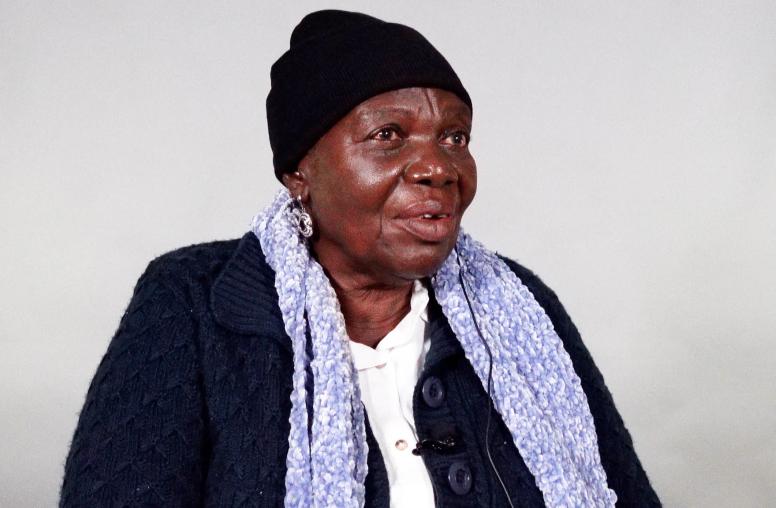Arab League Strives for Relevance on Syria but Faces Test
USIP's Steven Heydemann looks at Syria and the impact the Arab League can have on the Assad regime.
In recent months, the Arab League has unexpectedly become a serious player in efforts to manage the Syrian uprising. Breaking with its well-deserved reputation for irrelevance, the League proactively inserted itself into the Syrian crisis in November. Following months of regime violence against Syrian civilians, it suspended Syria’s membership. It imposed economic sanctions on Syria and then pressured the Assad regime into accepting an observer mission intended to reduce the regime’s violence against protesters. The League’s decisions were not unanimous—Iraq, Algeria, and Lebanon voted against the suspension of membership and sanctions—yet pressure from Saudi Arabia and Qatar, together with support from other GCC states and post-authoritarian governments in Tunisia and Libya, made possible a striking degree of inter-Arab consensus on a robust package of measures targeting the Assad regime.
The emergence of this consensus was broadly welcomed in Western capitals, and in Turkey. Both had to balance their opposition to the Assad regime carefully with their reluctance to be seen as getting too far out in front of efforts to secure its removal. Both are keenly aware of the Syrian opposition’s sensitivity to foreign intervention. Neither wanted to give credibility to the Assad regime’s claims that protests and anti-regime attacks were the work of a Western conspiracy. Thus, for both Turkey and the West, the Arab League’s activism on Syria brought significant advantages. It provided convenient cover for Western governments and Turkey, gave a useful veneer of Arab legitimacy as Western diplomatic and economic sanctions intensify, and served as an additional rationale for the West to lobby the U.N. Security Council for additional sanctions against Syria.
In the week ahead, however, the Arab League’s consensus on Syria will face its most serious challenges to date. On Sunday, the Arab League will meet in Cairo to assess future action against Syria. The League’s observer mission will formally conclude its work on January 19, and is expected to present its final report to the League almost immediately. It will not make for happy reading. Not surprisingly, the presence of a small, poorly trained, poorly equipped delegation of Arab monitors that is easily outmaneuvered and only has a one-month mandate -- did nothing to blunt the Assad regime's relentless violence against Syrian civilians. Since the observers arrived in Syria less than a month ago, the civilian death toll has climbed by several hundred. President Bashar al-Assad publicly mocked the Arab League in a speech on January 10 in which he again blamed the uprising on foreign conspiracies and promised to deploy an iron hand against his opponents.
In anticipation of a negative report from its observer mission, the Arab League has already begun discussions about how to respond. The resulting debate has exposed fault lines within the League, including between Secretary General Nabil al-Araby and a number of Gulf States. These may well deepen should the debate drag on. The League’s possible next steps include extending or expanding the observer mission or voting to refer Syria to the Security Council with a recommendcation to support sanctions. That latter approach would intensify pressure on Russia and China which until now have protected the Assad regime from the most serious Security Council sanctions. By far the most dramatic and far-fetching step would be to consider a proposal by Qatar’s Emir, Sheikh Hamad bin Khalifa al-Thani, to send Arab League forces to Syria to “stop the killing.”
Given the failure of the League’s observer mission, and the Assad regime’s contempt for its efforts, it would be difficult for the League to do nothing. Its least divisive option diplomatically will be to extend the mandate of an enlarged, better trained, and better equipped observer mission. It may well default to this least-costly outcome on Sunday. Anything beyond this, however, including a referral to the Security Council, is likely to provoke heated and potentially inconclusive debate among the League’s member states, testing the limits of its consensus on Syria, and potentially encouraging Syria’s allies to escalate their opposition to any further punitive measures.
While this may not occur, any erosion of the League’s consensus on Syria will have significant negative consequences. Not only would it deepen the sense of isolation and despair among Syrians, it could well leave Turkey and its Western counterparts without the clear backing of regional states at a difficult moment. It would come at a time when regime violence in Syria is increasing, the Assad regime is becoming more bellicose, and the militarization of the Syrian uprising continues to deepen.
While it is far too soon to predict that the Arab League’s consensus will collapse, strains in the coalition against Assad would threaten the momentum that has developed in the past month. Concerning the urgency of additional Arab measures to pressure the Assad regime, Weakening of the resolve against Assad would diminish efforts to secure U.N. Security Council sanctions and reinforce perceptions among Syria’s leaders that defiance pays off. Preventing such an outcome is beyond the influence of the U.S. and its Western and Turkish partners. But as the League prepares for deliberations next week, American diplomats must focus on how to make it clear to the League that there are serious consequences to backing down against Syria.
Editor's note: A version of this post appeared in al-Masry Al-Youm's weekly English publication, the Egypt Independent, Jan. 19, 2012.



